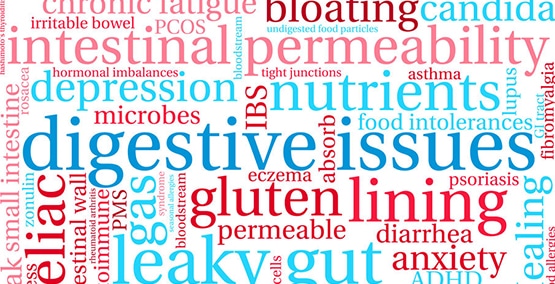
Relationship of celiac disease and gluten sensitivity and other conditions
Celiac disease can occur with other diseases. Because celiac disease is an autoimmune disorders, it may be found in people who have other types of autoimmune disorders.
Autoimmune Disorders
Type 1 Diabetes occurs in childhood. From 3-8 percent of children may also develop celiac disease. It is often recognized when blood sugars are bouncing around and insulin is harder to regulate.
Thyroid disease patients, especially those with Hashimoto's, appear to have a 3-6 percent crossover with celiac disease.
Juvenile arthritis patients have a higher risk of celiac disease.
Sjogren's Syndrome, a disease that affects mouth and eye secretions, usually in adults over 40, has a higher risk of celiac disease.
Lupus, arthritis and other autoimmune disorders are also at greater risk of celiac disease.
Liver diseases are more common in patients who have celiac disease. This includes, but is not limited to, autoimmune hepatitis.
Crohn's disease is another autoimmune disorder. Celiac is not more prominent in this group, but when it occurs, the Crohn's problems seem harder to control even on a strict gluten free diet.

Genetic Disorders
The following genetic disorder appear to have a higher rate of celiac disease:
Down syndrome – roughly 3-8 percent .
Turner's syndrome has as many as 8 percent.
Williams syndrome has 8-10 percent
Consequences of Celiac Disease
Anemia from poor iron absorption or low B12 and folate because of a gluten restricted diet.
Osteoporosis from poor calcium absorption and earlier menopause.
Dermatitis herpetiformis, a rash that can be present in adults before they know they have celiac disease.
Approximately 3-4 percent of women who have infertility have unrecognized celiac disease. An unknown percent of men with infertility also have celiac disease.
Women with uncontrolled celiac disease can have shorter periods and earlier menopause.
Intestinal cancers are more prominent in untreated celiac disease. On a gluten free diet that increased risk vanishes.
Migraines can result from celiac disease but sometimes removing gluten improves the headaches.
Depression is common in those who have untreated celiac disease and improves on a gluten free diet.
Anxiety is not as common as depression, but it improves on a gluten free diet
Gluten Sensitivity
<<Gluten sensitivity>> seems to be more common in a number of disorders even when they do not test positive for celiac disease. The following conditions have shown improvement on a gluten free diet:
Irritable Bowel Syndrome in adults
Depression and anxiety
Autistic Spectrum Disorder patients (including those with pervasive developmental disability (PDD) . These patients may also benefit with a casein free diet.
Asperger syndrome
Hyperactivity in children and adolescents
Bottom Line: Celiac and non-celiac sensitivity can be seen in numerous conditions. It is important to distinguish which type of gluten sensitivity exists with appropriate testing.
Further Resource: http://www.celiaccentral.org/related-diseases




